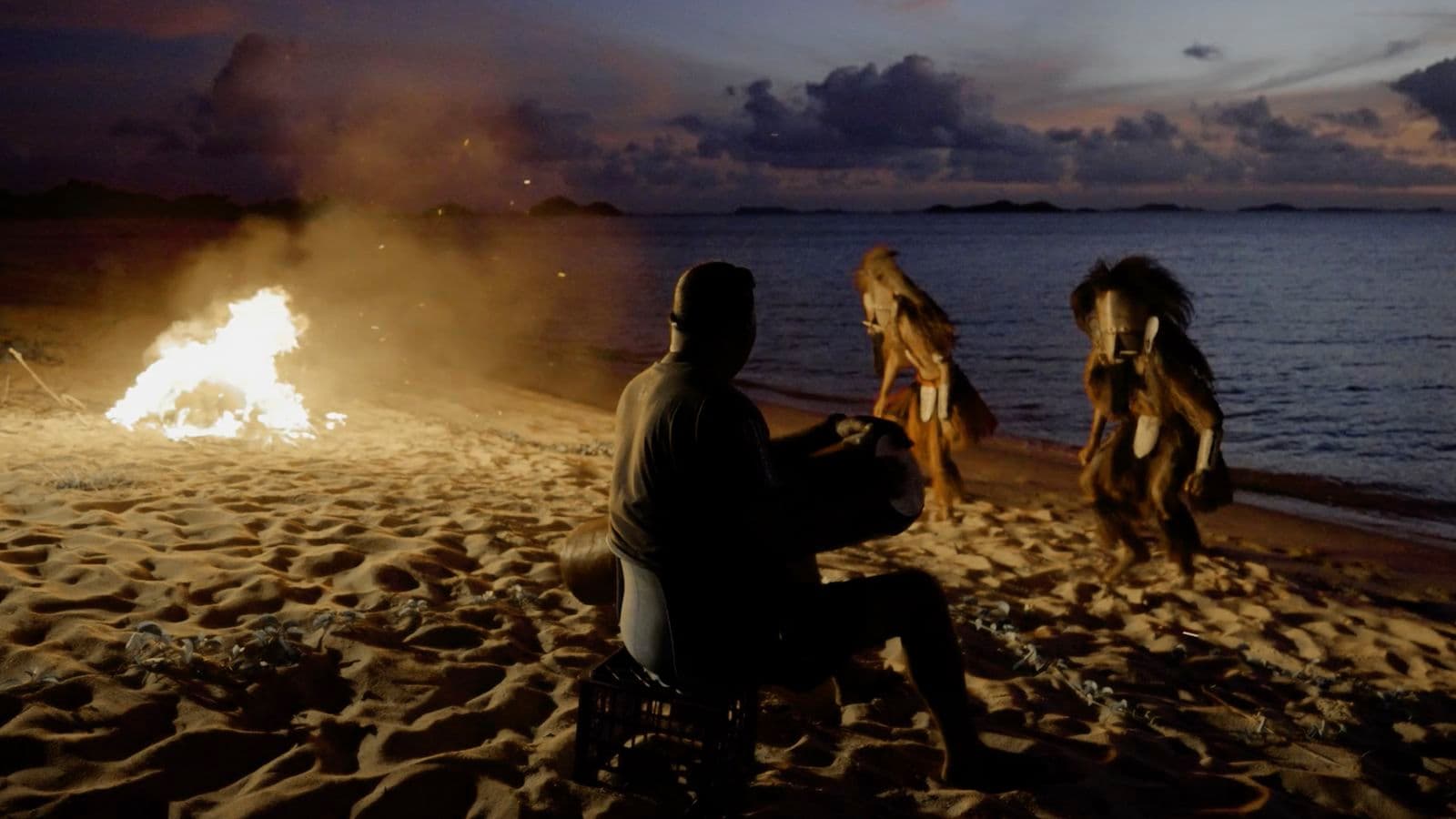Fiona Foley & Andrew Geoffrey Kwabena Moss

Fiona Foley, Badtjala people, HHH #1, 2004, National Gallery of Australia, Canberra, purchased 2009
HHH/KKK – Andrew Geoffrey Kwabena Moss

FROM WHITE ROBES BLEED
FOLEY’S KALEIDOSCOPE
TO OPPOSE POLAR US AND THEM,
‘OTHER’ ROLES
LIKE AGARD PLAYING TCHAIKOVSKY'S KEYS,
FIONA TRANSPOSING CAMERA OBSCURA CACOPHONY
COMPOSING GLOBAL SYMPHONIES...
OF SYMPATHY?
WATCH THE FULL POEM HERE
'Black audiences often see the humour in the parody, but that the hypothesis of the work is to provoke white audiences into imagining what it would be like to be the object of hatred. It makes many of them uncomfortable.'
FIONA FOLEY, BADTJALA PEOPLE, HHH #1, 2004
Fiona Foley, born 1964, Maryborough, Queensland and currently lives and works on Turrbal and Yuggera land, Meeanjin/Brisbane. Fiona draws on her lived experience as a First Nations person. HHH #1 is a photographic work, the title stands for Hedonistic Honkey Haters, a fictitious secret society that Fiona has imagined. The word ‘Hedonistic’ means to be overly self-indulgent. ‘Honkey’ is an African American slang term in reference to white people. In this alternate version of history, the society was formed as a reaction the Klu Klux Klan (KKK) who were responsible for acts of violence in the United States, motivated by racism. Fiona employs subversion and inversion to make her statement, with the hoods seen being reminiscent of those worn by the KKK. Fiona draws connections between the historical racism of both the United States and Australia, with shared colonial histories of slavery and racial violence. This work of art draws attention to the persistence of these issues in our contemporary society. Whilst HHH #1 comments on a serious and ongoing issue, Fiona employs humour in the work of art. This reversing of racial violence and discrimination in the work of art, turns the lens on the perpetrators and diminishes their power. Through the reversal of power dynamics, Fiona is taking control of the narrative and story. She invites a deeper and empathetic response from the viewer.
'I hope my poem leads to people investigating Fiona's work more deeply, I'd hope people look at my poem line by line. I’m hoping people discover the global connection in terms of oppression that still exists.'
HHH/KKK - ANDREW GEOFFREY KWABENA MOSS
Andrew Geoffrey Kwabena Moss is of Anglo-Ghanaian heritage. Born in Ghana, Africa he moved to the United Kingdom as an infant and currently lives on Gundungarra Country, Goulburn, NSW. Andrew’s poetry challenges the social constructs of race. In HHH/KKK, his response is the result of forming connections between the past and present, through direct impacts on his story and the indirect impact of momentous events in history. HHH/KKK draws on ancestry and lived experience, making affectionate references including influential and important figures, as well as culturally significant items connected to African people of the diaspora. An immediate connection Andrew made to HHH #1 was the Kente cloth featured as gowns worn in the work of art. Kente is an Akan indigenous textile, which historical adorned people of power and influence. For people of Ghanaian decent in contemporary society, wearing Kente is a celebration and reminder of culture and ancestry. Andrew has created a poem that sits alongside HHH #1, expanding on the initial connections made by Fiona Foley. HHH/KKK requires some careful reading, taking a close look to gain a deeper understanding and connection.
PROVOCATION
Within HHH #1, how has Fiona Foley used communication and how does non-verbal communication impact our interpretation?
In HHH/KKK how does careful reading change the course of your interaction with the ideas that Andrew Geoffrey Kwabena Moss is presenting?
Fiona Foley doesn’t like to describe themselves as a political artist, but a subversive artist. What is the difference between politics and subversion?
What are some examples of how subversion is used in society to change the course of conflict or to diffuse tension?
Why might this work make some audiences uncomfortable; how does it make you feel?
PROMPT
What is a moment in history that has impacted your life? It could be directly e.g. through your ancestors with migration, or indirectly with a sports person that has deeply impacted you. List some words that help describe the impact on your life.
CREATE
Create a visual representation of the words that you’ve listed. How would you position the words to create a new composition, how would you write the word to give a physical sense of the word. Is it cursive and elegant or strong and bold.
CREATE
After having a deeper reflection about your own experience, in this activity we will write an Ode. An ode is a celebratory poem or letter in adoration for someone or something.
An ode can be as simple as listing all the characteristics you admire of that object or person. You can play around with how you use a celebratory tone, you could even use humour to subvert the deeper and personal connection you have.
Your ode might begin with a line like “To my dearest ...” or “A tribute to ...”.
Write at least five lines, no more than ten.
Now you have the knowledge to form your own ekphrastic poem.
Select an artwork and form your own vivid expansion!
This Learning Resource is developed in partnership with Red Room Poetry as part of Poetry Month 2023.
-
Red Room Poetry
Visit the website for Red Room Poetry

-
Poetry Month Logo
Visit the website for Poetry Month Logo




